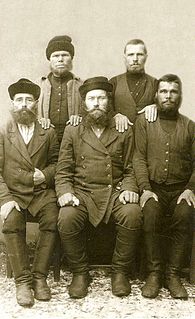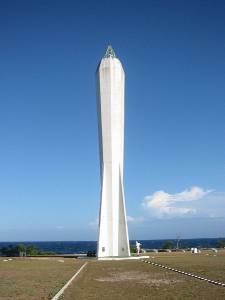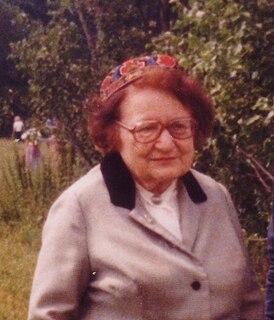
Pomors or Pomory are an ethnographic group descended from Russian settlers, primarily from Veliky Novgorod, living on the White Sea coasts and the territory whose southern border lies on a watershed which separates the White Sea river basin from the basins of rivers that flow south.

Nicholas Miklouho-Maclay was a Russian and Ukrainian explorer, ethnologist, anthropologist and biologist who became famous as one of the earliest scientists to settle among and study indigenous people of New Guinea who had never seen a European.

Madang is the capital of Madang Province and is a town with a population of 27,420 on the north coast of Papua New Guinea. It was first settled by the Germans in the 19th century.
Ogea or Erima is a Papuan language spoken by approximately 2210 people living in an area 18 kilometers south of the town of Madang, in the Madang Province of Papua New Guinea.

Mikhail Fyodorovich Astangov, real surname Ruzhnikov was a Soviet and Russian stage and film actor. People's Artist of the USSR (1955).

Saint Anna German High School, usually known as Annenschule, was a school in Saint Petersburg, Russia founded in 1736 for children of the German population of the city. In 1918, Annenschule became Soviet work school №11, and later school №203. Its alumni included well known people - ethnologist Nicholai Miklukho-Maklai, jeweler Peter Fabergé, philologist Faddei Zielinski, teacher and physician Peter Lesgaft, poet and Nobel Prize laureate Joseph Brodsky, actress Elena Granovsky, writer Igor Yefimov, and chess world championship pretendent Victor Korchnoi. In 1975 the famous city specialized high school №239 moved into the building.
The Institute of Anthropology and Ethnography or N.N. Miklukho-Maklai Institute of Ethnology and Anthropology is a Russian institute of research, specializing in ethnographic studies of cultural and physical anthropology. The institute is a constituent institute of the History branch of the Russian Academy of Sciences, with its main building on Leninsky Prospekt, Moscow.
The Ogea monarch or versicolored monarch is a species of bird in the family Monarchidae. It is endemic to two islands, Ogea Driki and Ogea Levu, in the Lau Group of south eastern Fiji.

Vokrug sveta is a Russian geographic magazine. It is the longest running magazine in the Russian language. The first issue was printed in Saint Petersburg, in December 1861, almost thirty years before the establishment of the National Geographic Magazine. Thus, it is one of the oldest popular science magazines in the world. Release of Vokrug sveta was suspended twice: from 1918 to 1927, during the Russian Revolution, and from 1941 to 1945, during World War II. Nevertheless, the magazine always resumed and continues to be published to this day.
The following outline is provided as an overview of and topical guide to anthropology:
Text Q of the rongorongo corpus, the smaller of two tablets in St. Petersburg and therefore also known as the Small St Petersburg tablet, is one of two dozen surviving rongorongo texts, and one of three recording the so-called "Grand Tradition".
Text P of the rongorongo corpus, the larger of two tablets in St. Petersburg and therefore also known as the Great or Large St Petersburg tablet, is one of two dozen surviving rongorongo texts, and one of three recording the so-called "Grand Tradition".
Alla Yervandovna "Yervandi" Ter-Sarkisiants was a historian and ethnographer of Armenia, doctor of historical sciences, leading specialist of the Caucasus department of N. N. Miklukho-Maklai Institute of Ethnology and Anthropology of the Russian Academy of Sciences, and a corresponding member of the Russian Academy of Natural Sciences.

Victor Alexandrovich Schnirelmann is a Russian historian, ethnologist and a member of Academia Europaea. He is a senior researcher of N. N. Miklukho-Maklai Institute of Ethnology and Anthropology at the Russian Academy of Sciences and an author of over 300 works, including over 20 monographies on archaeology. Schnirelmann's main fields include the ideologies of nationalism in Russia and CIS, ethnocentrism and irredentism.
Aleksandr Yefimovich Razumny was a Russian and Soviet film director and screenwriter. He was a graduate of the Grekov Odessa Art school in 1914.
Caspian race is a term used in racial anthropology by some authors to describe a sub-race of the greater Caucasian race. The term is used by M. G. Abdushelishvili (1979) as constituting a branch of the Mediterranean race or Irano-Afghan race. In Soviet-era anthropology, the term was used to include Tats and Azerbaijanis.
Miklukho-Maklai, is a 1947 Soviet drama film directed by Aleksandr Razumny.

Elizaveta Ivanovna Gnevusheva was a Soviet historian - orientalist, university lecturer, publicist. In 1994, she was a recipient of the Prima Comexindo Prize.

Valentina Kuindzhi was a Soviet actress.







